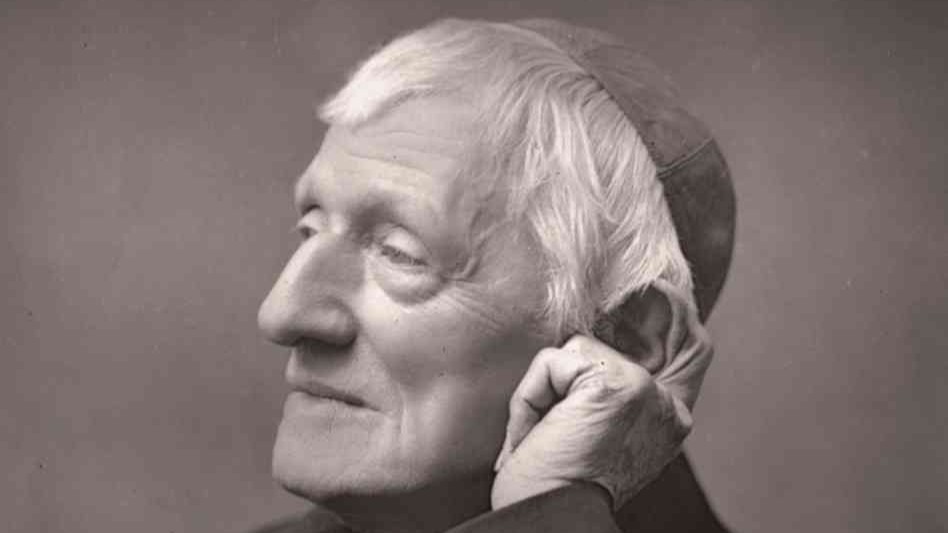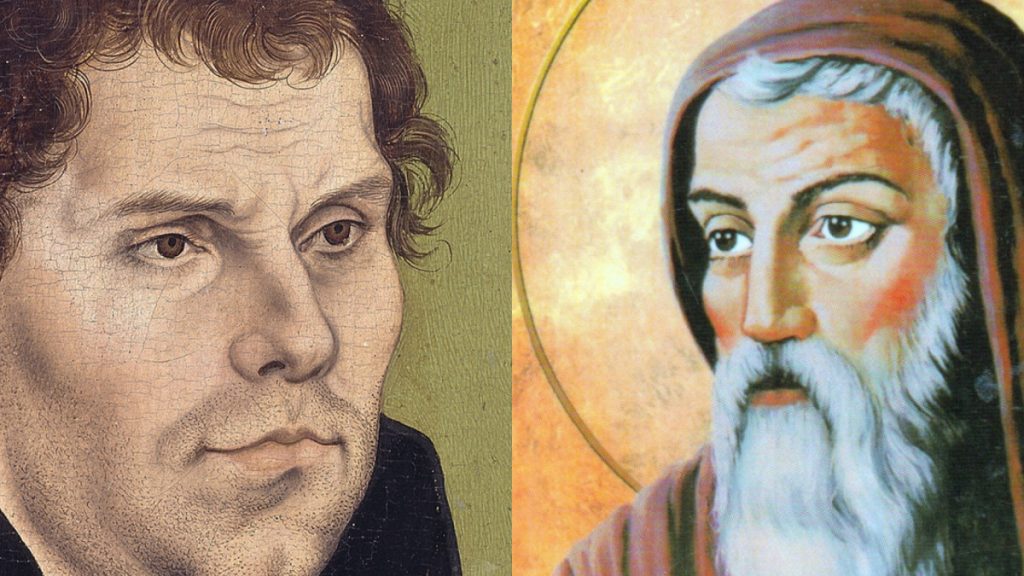(Updated July 25, 2025)
This Author Quote Archive collects pertinent quotes from the Ecclesiastical Writer, Tertullian.
Next to each quote are the Topic Quote Archives in which they are included.
This Quote Archive is being continuously updated as research continues. Quotes marked with “***” have not yet been organized into their respective Topic Quote Archives.
Treatises
Tertullian, An Answer to the Jews
What is more manifest than the mystery [sacrament] of this “wood”—that the obduracy of this world had been sunk in the profundity of error, and is freed in baptism by the “wood” of Christ, that is, of His passion; in order that what had formerly perished through the “tree” in Adam, should be restored through the “tree” in Christ?
Tertullian, Apology (197)
A maturer age has always preferred death by the sword. In our case, murder being once for all forbidden, we may not destroy even the fetus in the womb, while as yet the human being derives blood from other parts of the body for its sustenance. To hinder a birth is merely a speedier man-killing; nor does it matter whether you take away a life that is born, or destroy one that is coming to the birth. That is a man which is going to be one; you have the fruit already in its seed.
(Ch. 21) ***
In former times the Jews enjoyed much of God’s favor, when the fathers of their race were noted for their righteousness and faith. So it was that as a people they flourished greatly, and their kingdom attained to a lofty eminence; and so highly blessed were they, that for their instruction God spake to them in special revelations, pointing out to them beforehand how they should merit His favor and avoid His displeasure.
There is also another and a greater necessity for our offering prayer in behalf of the emperors, nay, for the complete stability of the empire, and for Roman interests in general. For we know that a mighty shock impending over the whole earth—in fact, the very end of all things threatening dreadful woes—is only retarded by the continued existence of the Roman empire. We have no desire, then, to be overtaken by these dire events; and in praying that their coming may be delayed, we are lending our aid to Rome’s duration. More than this, though we decline to swear by the genii of the Caesars, we swear by their safety, which is worth far more than all your genii. Are you ignorant that these genii are called Dæmones, and thence the diminutive name Dæmonia is applied to them? We respect in the emperors the ordinance of God, who has set them over the nations. We know that there is that in them which God has willed; and to what God has willed we desire all safety, and we count an oath by it a great oath. But as for demons, that is, your genii, we have been in the habit of exorcising them, not of swearing by them, and thereby conferring on them divine honor.
Tertullian, On the Apparel of Women (c. 197)
These suggestions are not made to you, of course, to be developed into an entire crudity and wildness of appearance; nor are we seeking to persuade you of the good of squalor and slovenliness; but of the limit and norm and just measure of cultivation of the person. There must be no overstepping of that line to which simple and sufficient refinements limit their desires—that line which is pleasing to God. For they who rub their skin with medicaments, stain their cheeks with rouge, make their eyes prominent with antimony, sin against Him. To them, I suppose, the plastic skill of God is displeasing! In their own persons, I suppose, they convict, they censure, the Artificer of all things! For censure they do when they amend, when they add to (His work;) taking these their additions, of course, from the adversary artificer. That adversary artificer is the devil. For who would show the way to change the body, but he who by wickedness transfigured man’s spirit? He it is, undoubtedly, who adapted ingenious devices of this kind; that in your persons it may be apparent that you, in a certain sense, do violence to God. Whatever is born is the work of God. Whatever, then, is plastered on (that), is the devil’s work. To superinduce on a divine work Satan’s ingenuities, how criminal is it! Our servants borrow nothing from our personal enemies: soldiers eagerly desire nothing from the foes of their own general; for, to demand for (your own) use anything from the adversary of Him in whose hand you are, is a transgression. Shall a Christian be assisted in anything by that evil one? (If he do,) I know not whether this name (of “Christian”) will continue (to belong) to him; for he will be his in whose lore he eagerly desires to be instructed. But how alien from your schoolings and professions are (these things)! How unworthy the Christian name, to wear a fictitious face, (you,) on whom simplicity in every form is enjoined!—to lie in your appearance, (you,) to whom (lying) with the tongue is not lawful!—to seek after what is another’s, (you,) to whom is delivered (the precept of) abstinence from what is another’s!—to practice adultery in your mien, (you,) who make modesty your study! Think, blessed (sisters), how will you keep God’s precepts if you shall not keep in your own persons His lineaments?
Tertullian, Ad Nationes, or To the Nations (c. 197)
(Book 1, Ch. 19) ***
Again, we affirm that a judgment has been ordained by God according to the merits of every man.
(Book 2, Ch. 1) ***
It is therefore against these things that our contest lies—against the institutions of our ancestors, against the authority of tradition, the laws of our governors, and the reasonings of the wise; against antiquity, custom, submission; against precedents, prodigies, miracles—all which things have had their part in consolidating that spurious system of your gods.
Tertullian, Prescription Against Heretics (c. 200)
- Apostolic Succession | §§20–21, 32
- The Papacy and the Invincibility of the Church | §§22, 36
- The Sacrament of Holy Orders, and the Authority of the Priesthood | §41
(§§20-22, 28, 32, 36, 41)
(§20) …They [the apostles] then in like manner founded churches in every city, from which all the other churches, one after another, derived the tradition of the faith, and the seeds of doctrine, and are every day deriving them, that they may become churches. Indeed, it is on this account only that they will be able to deem themselves apostolic, as being the offspring of apostolic churches. Every sort of thing must necessarily revert to its original for its classification. Therefore the churches, although they are so many and so great, comprise but the one primitive church, (founded) by the apostles, from which they all (spring). In this way all are primitive, and all are apostolic, while they are all proved to be one, in (unbroken) unity, by their peaceful communion, and title of brotherhood, and bond of hospitality—privileges which no other rule directs than the one tradition of the selfsame mystery.
(§21) …[W]hat it was which Christ revealed to them—can, as I must here likewise prescribe, properly be proved in no other way than by those very churches which the apostles founded in person, by declaring the gospel to them directly themselves, both viva voce, as the phrase is, and subsequently by their epistles. If, then, these things are so, it is in the same degree manifest that all doctrine which agrees with the apostolic churches—those molds and original sources of the faith must be reckoned for truth, as undoubtedly containing that which the (said) churches received from the apostles, the apostles from Christ, Christ from God. Whereas all doctrine must be prejudged as false which savors of contrariety to the truth of the churches and apostles of Christ and God. It remains, then, that we demonstrate whether this doctrine of ours, of which we have now given the rule, has its origin in the tradition of the apostles, and whether all other doctrines do not ipso facto proceed from falsehood. We hold communion with the apostolic churches because our doctrine is in no respect different from theirs. This is our witness of truth…
(§22) …What man, then, of sound mind can possibly suppose that they were ignorant of anything, whom the Lord ordained to be masters (or teachers), keeping them, as He did, inseparable (from Himself) in their attendance, in their discipleship, in their society, to whom, “when they were alone, He used to expound” all things (Mark 4:34) which were obscure, telling them that “to them it was given to know those mysteries” (Matt. 13:11), which it was not permitted the people to understand? Was anything withheld from the knowledge of Peter, who is called “the rock on which the church should be built” (Matt. 16:18), who also obtained “the keys of the kingdom of heaven” (Matt. 16:18), with the power of “loosing and binding in heaven and on earth?” (Matt. 16:19)…
*** (§28) Grant, then, that all have erred; that the apostle was mistaken in giving his testimony; that the Holy Ghost had no such respect to any one (church) as to lead it into truth, although sent with this view by Christ [John 14:26], and for this asked of the Father that He might be the teacher of truth [John 15:26]. Grant, also, that He, the Steward of God, the Vicar of Christ, neglected His office, permitting the churches for a time to understand differently, (and) to believe differently, what He Himself was preaching by the apostles—is it likely that so many churches, and they so great, should have gone astray into one and the same faith? No casualty distributed among many men issues in one and the same result. Error of doctrine in the churches must necessarily have produced various issues. When, however, that which is deposited among many is found to be one and the same, it is not the result of error, but of tradition. Can anyone, then, be reckless enough to say that they were in error who handed on the tradition? ***
(§32) But if there be any (heresies) which are bold enough to plant themselves in the midst of the apostolic age, that they may thereby seem to have been handed down by the apostles, because they existed in the time of the apostles, we can say: Let them produce the original records of their churches; let them unfold the roll of their bishops, running down in due succession from the beginning in such a manner that [that first bishop of theirs ] bishop shall be able to show for his ordainer and predecessor some one of the apostles or of apostolic men—a man, moreover, who continued steadfast with the apostles. For this is the manner in which the apostolic churches transmit their registers: as the church of Smyrna, which records that Polycarp was placed therein by John; as also the church of Rome, which makes Clement to have been ordained in like manner by Peter. In exactly the same way the other churches likewise exhibit (their several worthies), whom, as having been appointed to their episcopal places by apostles, they regard as transmitters of the apostolic seed. Let the heretics contrive something of the same kind. For after their blasphemy, what is there that is unlawful for them (to attempt)? But should they even effect the contrivance, they will not advance a step. For their very doctrine, after comparison with that of the apostles, will declare, by its own diversity and contrariety, that it had for its author neither an apostle nor an apostolic man; because, as the apostles would never have taught things which were self-contradictory, so the apostolic men would not have inculcated teaching different from the apostles, unless they who received their instruction from the apostles went and preached in a contrary manner. To this test, therefore, will they be submitted for proof by those churches, who, although they derive not their founder from apostles or apostolic men (as being of much later date, for they are in fact being founded daily), yet, since they agree in the same faith, they are accounted as not less apostolic because they are akin in doctrine. Then let all the heresies, when challenged to these two tests by our apostolic church, offer their proof of how they deem themselves to be apostolic. But in truth they neither are so, nor are they able to prove themselves to be what they are not. Nor are they admitted to peaceful relations and communion by such churches as are in any way connected with apostles, inasmuch as they are in no sense themselves apostolic because of their diversity as to the mysteries of the faith…
(§36) Come now, you who would indulge a better curiosity, if you would apply it to the business of your salvation, run over the apostolic churches, in which the very thrones of the apostles are still pre-eminent in their places, in which their own authentic writings are read, uttering the voice and representing the face of each of them severally. Achaia is very near you, (in which) you find Corinth. Since you are not far from Macedonia, you have Philippi; (and there too) you have the Thessalonians. Since you are able to cross to Asia, you get Ephesus. Since, moreover, you are close upon Italy, you have Rome, from which there comes even into our own hands the very authority (of apostles themselves). How happy is its church, on which apostles poured forth all their doctrine along with their blood! Where Peter endures a passion like his Lord’s! where Paul wins his crown in a death like John’s [the Baptist]. Where the Apostle John was first plunged, unhurt, into boiling oil, and thence remitted to his island-exile!…
(§41) …The very women of these heretics, how wanton they are! For they are bold enough to teach, to dispute, to enact exorcisms, to undertake cures—it may be even to baptize…
Tertullian, Repentance (c. 203)
(Ch. 2) ***
A good deed has God as its debtor, just as an evil has too; for a judge is rewarder of every cause.
Yet most men either shun this work [confession], as being a public exposure of themselves, or else defer it from day to day. I presume (as being) more mindful of modesty than of salvation; just like men who, having contracted some malady in the more private parts of the body, avoid the privity of physicians, and so perish with their own bashfulness. It is intolerable, forsooth, to modesty to make satisfaction to the offended Lord! To be restored to its forfeited salvation! Truly you are honorable in your modesty; bearing an open forehead for sinning, but an abashed one for deprecating! I give no place to bashfulness when I am a gainer by its loss; when it exhorts the man, “Respect not me; it is better that I perish through you than you through me.”…Is it better to be damned in secret than absolved in public? But you say, “It is a miserable thing thus to come to exomologesis [penitential rite]”; yes, for evil does bring to misery; but where repentance is to be made, the misery ceases, because it is turned into something salutary. Miserable it is to be cut, and cauterized, and racked with the pungency of some (medicinal) powder: still, the things which heal by unpleasant means do, by the benefit of the cure, excuse their own offensiveness, and make present injury bearable for the sake of the advantage to supervene.
Tertullian, The Martyrdom of Perpetua and Felicity (c. 203)
(§3) Without delay, on that very night, this was shown to me in a vision. I saw Dinocrates going out from a gloomy place, where also there were several others, and he was parched and very thirsty, with a filthy countenance and pallid color, and the wound on his face which he had when he died. This Dinocrates had been my brother after the flesh, seven years of age, who died miserably with disease—his face being so eaten out with cancer, that his death caused repugnance to all men. For him I had made my prayer, and between him and me there was a large interval, so that neither of us could approach to the other…And I was upset, and knew that my brother was in suffering. But I trusted that my prayer would bring help to his suffering; and I prayed for him every day until we passed over into the prison of the camp, for we were to fight in the camp-show. Then was the birthday of Geta Caesar, and I made my prayer for my brother day and night, groaning and weeping that he might be granted to me.
(§4) Then, on the day on which we remained in fetters, this was shown to me. I saw that that place which I had formerly observed to be in gloom was now bright; and Dinocrates, with a clean body well clad, was finding refreshment. And…he went away from the water to play joyously, after the manner of children, and I awoke. Then I understood that he was translated from the place of punishment.
Tertullian, On Baptism (c. 203)
- The Sacrament of Baptism | Ch. 1, 5, 7, 11-13, 16, 20
- The Sacrament of Confirmation | Ch. 7
- The Sacrament of Holy Orders, and the Authority of the Priesthood | Ch. 1
(Ch. 1, 5, 7, 11-13, 16, 20)
(Ch. 1) Happy is our sacrament of water, in that, by washing away the sins of our early blindness, we are set free and admitted into eternal life! A treatise on this matter will not be superfluous; instructing not only such as are just becoming formed (in the faith), but them who, content with having simply believed, without full examination of the grounds of the traditions, carry (in mind), through ignorance, an untried though probable faith. The consequence is, that a viper of the Cainite heresy, lately conversant in this quarter, has carried away a great number with her most venomous doctrine, making it her first aim to destroy baptism. Which is quite in accordance with nature; for vipers and asps and basilisks themselves generally do affect arid and waterless places. But we, little fishes, after the example of our ΙΧΘΥΣ Jesus Christ, are born in water, nor have we safety in any other way than by permanently abiding in water; so that most monstrous creature, who had no right to teach even sound doctrine, knew full well how to kill the little fishes, by taking them away from the water!…
(Ch. 5) …And thus, when the grace of God advanced to higher degrees among men [John 1:16-17], an accession of efficacy was granted to the waters and to the angel. They who were wont to remedy bodily defects, now heal the spirit; they who used to work temporal salvation now renew eternal; they who did set free but once in the year, now save peoples in a body daily, death being done away through ablution of sins. The guilt being removed, of course the penalty is removed too. Thus man will be restored for God to His likeness, who in days bygone had been conformed to the image of God; (the image is counted (to be) in his form: the likeness in his eternity) for he receives again that Spirit of God which he had then first received from His afflatus, but had afterward lost through sin…
(Ch. 7) After this, when we have issued from the font, we are thoroughly anointed with a blessed unction—[a practice derived] from the old discipline, wherein on entering the priesthood, men were wont to be anointed with oil from a horn, ever since Aaron was anointed by Moses. Whence Aaron is called “Christ,” from the “chrism,” which is “the unction”; which, when made spiritual, furnished an appropriate name to the Lord, because He was “anointed” with the Spirit by God the Father; as written in the Acts: “For truly they were gathered together in this city against Your Holy Son whom You have anointed” (Acts 4:27). Thus, too, in our case, the unction runs carnally, (i.e. on the body) but profits spiritually; in the same way as the act of baptism itself too is carnal, in that we are plunged in water, but the effect spiritual, in that we are freed from sins.
(Ch. 11) …[N]o other [baptism] exists, except that of Christ subsequently; which at that time, of course, could not be given by His disciples, inasmuch as the glory of the Lord had not yet been fully attained, nor the efficacy of the font [of baptism] established through the passion and the resurrection; because neither can our death see dissolution except by the Lord’s passion, nor our life be restored without His resurrection.
(Ch. 12) …[T]he prescript is laid down that “without baptism, salvation is attainable by none” (chiefly on the ground of that declaration of the Lord, who says, “Unless one be born of water, he has not life”)…
(Ch. 13) Here, then, those miscreants provoke questions. And so they say, “Baptism is not necessary for them to whom faith is sufficient; for withal, Abraham pleased God by a sacrament of no water, but of faith.” But in all cases it is the later things which have a conclusive force, and the subsequent which prevail over the antecedent. Grant that, in days gone by, there was salvation by means of bare faith, before the passion and resurrection of the Lord. But now that faith has been enlarged, and has become a faith which believes in His nativity, passion, and resurrection, there has been an amplification added to the sacrament, viz., the sealing act of baptism; the clothing, in some sense, of the faith which before was bare, and which cannot exist now without its proper law. For the law of baptizing has been imposed, and the formula prescribed: “Go,” He says, “teach the nations, baptizing them into the name of the Father, and of the Son, and of the Holy Spirit.” The comparison with this law of that definition, “Unless a man have been reborn of water and Spirit, he shall not enter into the kingdom of the heavens” (John 3:5), has tied faith to the necessity of baptism. Accordingly, all thereafter who became believers used to be baptized. Then it was, too, that Paul, when he believed, was baptized; and this is the meaning of the precept which the Lord had given him when smitten with the plague of loss of sight, saying, “Arise, and enter Damascus; there shall be demonstrated to you what you ought to do” (Acts 9:6), to wit—be baptized, which was the only thing lacking to him…
(Ch. 16) We have indeed, likewise, a second font, (itself withal one with the former) of blood, to wit; concerning which the Lord said, “I have to be baptized with a baptism,” when He had been baptized already. For He had come “by means of water and blood” (1 John 5:6), just as John has written; that He might be baptized by the water, glorified by the blood; to make us, in like manner, called by water, chosen by blood. These two baptisms He sent out from the wound in His pierced side, in order that they who believed in His blood might be bathed with the water; they who had been bathed in the water might likewise drink the blood. This is the baptism which both stands in lieu of the fontal bathing when that has not been received, and restores it when lost…
(Ch. 20) They who are about to enter baptism ought to pray with repeated prayers, fasts, and bendings of the knee, and vigils all the night through, and with the confession of all by-gone sins, that they may express the meaning even of the baptism of John: “They were baptized,” says (the Scripture), “confessing their own sins.” To us it is matter for thankfulness if we do now publicly confess our iniquities or our turpitudes: for we do at the same time both make satisfaction for our former sins, by mortification of our flesh and spirit, and lay beforehand the foundation of defenses against the temptations which will closely follow…Therefore, blessed ones [catechumens], whom the grace of God awaits, when you ascend from that most sacred font of your new birth, and spread your hands for the first time in the house of your mother, together with your brethren, ask from the Father, ask from the Lord, that His own specialties of grace and distributions of gifts [1 Cor. 12:4-12] may be supplied you…
Tertullian, On the Veiling of Virgins (206)
It is not permitted to a woman to speak in the church [1 Cor. 14:34-35; 1 Tim. 2:11-12]; but neither (is it permitted her) to teach, nor to baptize, nor to offer, nor to claim to herself a lot in any manly function, not to say (in any) sacerdotal office.
Tertullian, Against Marcion (c. 209)
- The Canon of Scripture | Book 4, Ch. 5
- Apostolic Succession | Book 4, Ch. 2
- The Papacy and the Invincibility of the Church | Book 4, Ch. 5
- Malachi’s Prophecy of the Eucharist in the Church Fathers | Book 4, Ch. 1
(Book 3, Ch. 1) ***
This is most easily proved by an examination of both the apostolic and the heretical churches, from which we are forced to declare that there is undoubtedly a subversion of the rule (of faith), where any opinion is found of later date…
Forasmuch then as he said, that from the Creator there would come other laws, and other words, and new dispensations of covenants, indicating also that the very sacrifices were to receive higher offices, and that amongst all nations, by Malachi when he says: “I have no pleasure in you, saith the Lord, neither will I accept your sacrifices at your hands. For from the rising of the sun, even unto the going down of the same, my name shall be great among the Gentiles; and in every place a sacrifice is offered unto my name, even a pure offering” (Mal. 1:10-11)—meaning simple prayer from a pure conscience—it is of necessity that every change which comes as the result of innovation, introduces a diversity in those things of which the change is made, from which diversity arises also a contrariety.
Then, at last, having conferred with the (primitive) authors, and having agreed with them touching the rule of faith, they joined their hands in fellowship, and divided their labors thenceforth in the office of preaching the gospel, so that they were to go to the Jews, and St. Paul to the Jews and the Gentiles. Inasmuch, therefore, as the enlightener of St. Luke himself [St. Paul] desired the authority of his predecessors for both his own faith and preaching, how much more may not I require for Luke’s Gospel that which was necessary for the Gospel of his master.
*** On the whole, then, if that is evidently more true which is earlier, if that is earlier which is from the very beginning, if that is from the beginning which has the apostles for its authors, then it will certainly be quite as evident, that that comes down from the apostles, which has been kept as a sacred deposit in the churches of the apostles… *** The same authority of the apostolic churches will afford evidence to the other Gospels also, which we possess equally through their means, and according to their usage—I mean the Gospels of John and Matthew—whilst that which Mark published may be affirmed to be Peter’s whose interpreter Mark was…Such are the summary arguments which we use, when we take up arms against heretics for the faith of the gospel, maintaining both that order of periods, which rules that a late date is the mark of forgers, and that authority of churches which lends support to the tradition of the apostles; because truth must needs precede the forgery, and proceed straight from those by whom it has been handed on.
(Book 5, Ch. 19) ***
For if, even at that time, the tradition of the gospel had spread everywhere, how much more now!
Tertullian, Resurrection of the Flesh (c. 210)
- The Blessed Sacrament of the Holy Eucharist | Ch. 8
- The Sacrament of Baptism | Ch. 8
- The Sacrament of Confirmation | Ch. 8
- End Times | Ch. 24
Now such remarks have I wished to advance in defense of the flesh, from a general view of the condition of our human nature. Let us now consider its special relation to Christianity, and see how vast a privilege before God has been conferred on this poor and worthless substance. It would suffice to say, indeed, that there is not a soul that can at all procure salvation, except it believe while it is in the flesh, so true is it that the flesh is the very condition on which salvation hinges. And since the soul is, in consequence of its salvation, chosen to the service of God, it is the flesh which actually renders it capable of such service. The flesh, indeed, is washed, in order that the soul may be cleansed; the flesh is anointed, that the soul may be consecrated; the flesh is signed (with the cross), that the soul too may be fortified; the flesh is shadowed with the imposition of hands, that the soul also maybe illuminated by the Spirit; the flesh feeds on the body and blood of Christ, that the soul likewise may fatten on its God. They cannot then be separated in their recompense, when they are united in their service…
Again, in the second epistle he addresses them with even greater earnestness: “Now I beseech you, brethren, by the coming of our Lord Jesus Christ, and by our gathering together unto Him, that you be not soon shaken in mind, nor be troubled, either by spirit, or by word,” that is, the word of false prophets, “or by letter,” that is, the letter of false apostles, “as if from us, as that the day of the Lord is at hand. Let no man deceive you by any means. For that day shall not come, unless indeed there first come a falling away,” he means indeed of this present empire, “and that man of sin be revealed,” that is to say, Antichrist, “the son of perdition, who opposes and exalts himself above all that is called God or religion; so that he sits in the temple of God, affirming that he is God. Remember you not, that when I was with you, I used to tell you these things? And now you know what detains, that he might be revealed in his time. For the mystery of iniquity does already work; only he who now hinders must hinder, until he be taken out of the way” (2 Thess. 2:1-7). What obstacle is there but the Roman state, the falling away of which, by being scattered into ten kingdoms, shall introduce Antichrist upon (its own ruins)? “And then shall be revealed the wicked one, whom the Lord shall consume with the spirit of His mouth, and shall destroy with the brightness of His coming: even him whose coming is after the working of Satan, with all power, and signs, and lying wonders, and with all deceivableness of unrighteousness in them that perish” (2 Thess. 2:8-10).
Tertullian, The Flesh of Christ (c. 210)
But that I may lose no opportunity of supporting my argument from the name of Adam, why is Christ called Adam by the apostle, unless it be that, as man, He was of that earthly origin? And even reason here maintains the same conclusion, because it was by just the contrary operation that God recovered His own image and likeness, of which He had been robbed by the devil. For it was while Eve was yet a virgin, that the ensnaring word had crept into her ear which was to build the edifice of death. Into a virgin’s soul, in like manner, must be introduced that Word of God which was to raise the fabric of life; so that what had been reduced to ruin by this sex, might by the selfsame sex be recovered to salvation. As Eve had believed the serpent, so Mary believed the angel. The delinquency which the one occasioned by believing, the other by believing effaced. But (it will be said) Eve did not at the devil’s word conceive in her womb. Well, she at all events conceived; for the devil’s word afterwards became as seed to her that she should conceive as an outcast, and bring forth in sorrow. Indeed she gave birth to a fratricidal devil; while Mary, on the contrary, bare one who was one day to secure salvation to Israel, His own brother after the flesh, and the murderer of Himself. God therefore sent down into the virgin’s womb His Word, as the good Brother, who should blot out the memory of the evil brother. Hence it was necessary that Christ should come forth for the salvation of man, in that condition of flesh into which man had entered ever since his condemnation.
Tertullian, A Treatise on the Soul (c. 210)
(Ch. 25, 27, 37, 58)
(Ch. 25) …Accordingly, among surgeons’ tools there is a certain instrument, which is formed with a nicely-adjusted flexible frame for opening the uterus first of all, and keeping it open; it is further furnished with an annular blade, by means of which the limbs within the womb are dissected with anxious but unfaltering care; its last appendage being a blunted or covered hook, wherewith the entire fetus is extracted by a violent delivery. There is also (another instrument in the shape of) a copper needle or spike, by which the actual death is managed in this furtive robbery of life: they give it, from its infanticide function, the name of ἐμβρυοσφάκτης , the slayer of the infant, which was of course alive. Such apparatus was possessed both by Hippocrates, and Asclepiades, and Erasistratus, and Herophilus, that dissector of even adults, and the milder Soranus himself, who all knew well enough that a living being had been conceived, and pitied this most luckless infant state, which had first to be put to death, to escape being tortured alive…
(Ch. 27) …Now we allow that life begins with conception, because we contend that the soul also begins from conception; life taking its commencement at the same moment and place that the soul does…
(Ch. 37) …The law of Moses, indeed, punishes with due penalties the man who shall cause abortion, inasmuch as there exists already the rudiment of a human being, which has imputed to it even now the condition of life and death, since it is already liable to the issues of both, although, by living still in the mother, it for the most part shares its own state with the mother…
(Ch. 58) All souls, therefore, are shut up within Hades: do you admit this? (It is true, whether) you say yes or no: moreover, there are already experienced there punishments and consolations; and there you have a poor man and a rich. And now, having postponed some stray questions for this part of my work, I will notice them in this suitable place, and then come to a close. Why, then, cannot you suppose that the soul undergoes punishment and consolation in Hades in the interval, while it awaits its alternative of judgment, in a certain anticipation either of gloom or of glory? You reply: Because in the judgment of God its matter ought to be sure and safe, nor should there be any inkling beforehand of the award of His sentence; and also because (the soul) ought to be covered first by its vestment of the restored flesh, which, as the partner of its actions, should be also a sharer in its recompense. What, then, is to take place in that interval? Shall we sleep? But souls do not sleep even when men are alive: it is indeed the business of bodies to sleep, to which also belongs death itself, no less than its mirror and counterfeit sleep. Or will you have it, that nothing is there done whither the whole human race is attracted, and whither all man’s expectation is postponed for safe keeping? Do you think this state is a foretaste of judgment, or its actual commencement? A premature encroachment on it, or the first course in its full ministration? Now really, would it not be the highest possible injustice, even in Hades, if all were to be still well with the guilty even there, and not well with the righteous even yet? What, would you have hope be still more confused after death? Would you have it mock us still more with uncertain expectation? Or shall it now become a review of past life, and an arranging of judgment, with the inevitable feeling of a trembling fear? But, again, must the soul always tarry for the body, in order to experience sorrow or joy? Is it not sufficient, even of itself, to suffer both one and the other of these sensations? How often, without any pain to the body, is the soul alone tortured by ill-temper, and anger, and fatigue, and very often unconsciously, even to itself? How often, too, on the other hand, amidst bodily suffering, does the soul seek out for itself some furtive joy, and withdraw for the moment from the body’s importunate society? I am mistaken if the soul is not in the habit, indeed, solitary and alone, of rejoicing and glorifying over the very tortures of the body. Look for instance, at the soul of Mutius Scævola as he melts his right hand over the fire; look also at Zeno’s, as the torments of Dionysius pass over it. The bites of wild beasts are a glory to young heroes, as on Cyrus were the scars of the bear. Full well, then, does the soul even in Hades know how to joy and to sorrow even without the body; since when in the flesh it feels pain when it likes, though the body is unhurt; and when it likes it feels joy though the body is in pain. Now if such sensations occur at its will during life, how much rather may they not happen after death by the judicial appointment of God! Moreover, the soul executes not all its operations with the ministration of the flesh; for the judgment of God pursues even simple cogitations and the merest volitions. “Whosoever looks on a woman to lust after her, has committed adultery with her already in his heart” (Matt. 5:28). Therefore, even for this cause it is most fitting that the soul, without at all waiting for the flesh, should be punished for what it has done without the partnership of the flesh. So, on the same principle, in return for the pious and kindly thoughts in which it shared not the help of the flesh, shall it without the flesh receive its consolation. Nay more, even in matters done through the flesh the soul is the first to conceive them, the first to arrange them, the first to authorize them, the first to precipitate them into acts. And even if it is sometimes unwilling to act, it is still the first to treat the object which it means to effect by help of the body. In no case, indeed, can an accomplished fact be prior to the mental conception thereof. It is therefore quite in keeping with this order of things, that that part of our nature should be the first to have the recompense and reward to which they are due on account of its priority. In short, inasmuch as we understand the prison pointed out in the Gospel to be Hades [Matt. 5:25], and as we also interpret the uttermost farthing to mean the very smallest offense which has to be recompensed there before the resurrection, no one will hesitate to believe that the soul undergoes in Hades some compensatory discipline, without prejudice to the full process of the resurrection, when the recompense will be administered through the flesh besides.
Tertullian, The Chaplet, or De Corona (211)
*** If no passage of Scripture has prescribed it, assuredly custom, which without doubt flowed from tradition, has confirmed it. For how can anything come into use, if it has not first been handed down? Even in pleading tradition, written authority, you say, must be demanded. Let us inquire, therefore, whether tradition, unless it be written, should not be admitted. Certainly we shall say that it ought not to be admitted, if no cases of other practices which, without any written instrument, we maintain on the ground of tradition alone, and the countenance thereafter of custom, affords us any precedent… ***
We take also, in congregations before daybreak, and from the hand of none but the presidents, the sacrament of the Eucharist, which the Lord both commanded to be eaten at meal-times, and enjoined to be taken by all alike. As often as the anniversary comes round, we make offerings for the dead as birthday honors…
Tertullian, Scorpiace (c. 211)
For though you think heaven still shut, remember that the Lord left here to Peter and through him to the Church, the keys of it, which everyone who has been here put to the question, and also made confession, will carry with him…
Tertullian, On Modesty (c. 220)
- Mortal Sin: Christians Can Lose Their Salvation | Ch. 21
- The Papacy and the Invincibility of the Church | Ch. 21
- Homosexual and Gender-Confusing Behavior | Ch. 4
But all the other frenzies of passions—impious both toward the bodies and toward the sexes—beyond the laws of nature, we banish not only from the threshold, but from all shelter of the Church, because they are not sins, but monstrosities.
Discipline governs a man, power sets a seal upon him, apart from the fact that power is the Spirit, but the Spirit is God. What did the Spirit teach? That there must be no communicating with the works of darkness. Observe what he says. Who, moreover, was able to forgive sins? This is his prerogative alone: for “who remits sin but God alone?” And, of course, (who but he can remit) mortal sins, such as those committed against himself, and against his temple [the Church]?…
I now inquire into your opinion, (to see) from what source you usurp this right to the Church.
If, because the Lord has said to Peter, “Upon this rock will I build My Church, to you have I given the keys of the heavenly kingdom” (Matt. 16:18, 19); or, “Whatsoever you shall have bound or loosed in earth, shall be bound or loosed in the heavens” (Matt. 16:19) you therefore presume that the power of binding and loosing has derived to you, that is, to every Church akin to Peter, what sort of man are you, subverting and wholly changing the manifest intention of the Lord, conferring (as that intention did) this (gift) personally upon Peter? On “you,” He says, “will I build My Church”; and, “I will give to you the keys,” not to the Church; and, “Whatsoever you shall have loosed or bound,” not “what they shall have loosed or bound.” For so withal the result teaches. In (Peter) himself the Church was reared; that is, through (Peter) himself; (Peter) himself essayed the key…
Tertullian, On Monogamy (c. 218)
Indeed, she [a widow] prays for his [her husband’s] soul, and requests refreshment for him meanwhile, and fellowship (with him) in the first resurrection; and she offers (her sacrifice) on the anniversaries of his falling asleep.









